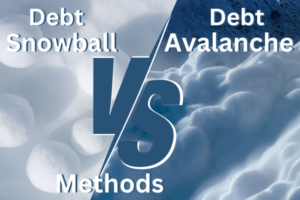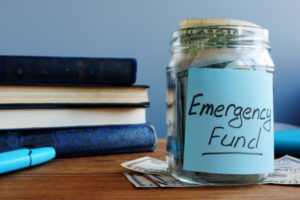Have you been relying a little too heavily on your credit cards? How do you know if you have too much credit card debt? These answers may vary from person to person based on each individual’s financial situation. However, there are a few credit counseling tips that everyone should follow to keep their credit under control:
Keep a low credit utilization rate.
Keeping a low credit utilization rate is one way to make sure that credit card debt doesn’t start piling up. This is also one of the factors that goes into determining your credit score. Your credit utilization rate refers to the amount of credit you are using in relation to how much credit is available to you. For example, if you $1,000 of available credit, you shouldn’t use more than $300 in credit. If you keep this in mind whenever you use your credit card, you shouldn’t be accumulating too much credit card debt. This will also help to ensure you have a good credit score so that when you need an auto loan, mortgage, or a new apartment, your credit score won’t be a red flag to lenders.
Make sure you can pay your card off every month.
Remember, credit cards aren’t free money. Eventually, all of the charges you make on your card will have to be paid back. If you can’t afford to pay for what you’re charging on your card in full by the time your credit card payment is due, you shouldn’t be spending that much. Ideally, you should be able to pay off your credit cards on time and in full every month. Not paying your credit cards off in full can result in interest starting to build up, so you could end up paying much more than the principal amount you charged to your card.
Have an emergency fund.
If you lose your job, have unexpected medical bills, or urgent car/home repairs, relying on credit cards to cover these expenses can lead to a vicious cycle of credit card debt. This is why it is so important to have an emergency fund so you have money readily available to so that the cost of unexpected emergency expenses is not as burdensome. Your emergency fund should have 3-6 months’ worth of expenses in it. If for any reason you cannot find employment after losing your job or you are injured and unable to work, you can still comfortably support yourself if you have that money in a savings account.
What to do if you have too much credit card debt:
If your credit utilization rate is consistently above 30%, you can’t pay off your credit cards every month, or you’ve been relying on credit after an emergency, you may find that you have too much credit card debt. What can you do to get your credit card debt under control? There are a few options available to you:
Strategically pay down your debt on your own.
There are two popular methods that consumers can use to strategically pay down debt without outside help. These methods are known as the “Debt Snowball” and “Debt Avalanche” methods. The Debt Snowball Method is a method of debt payoff in which you start aggressively paying down the account with the lowest balance first. On the rest of your accounts, make the minimum payment. Once the account with the lowest balance is paid off, move to the next lowest, and so on.
The Debt Avalanche Method works in a similar fashion. However, rather than starting with the account with the lowest balance, start with the account that has the highest interest rate. In the long-run, this method will save you more money since the interest rates on credit cards can be quite high.
Seek help from a nonprofit credit counseling agency.
If you find that your debt is too overwhelming to pay off on your own, you may want to start looking for outside help. Be careful! There are a lot of scammers out there that claim to be debt relief companies. The best place to seek help if you have too much credit card debt would be a nonprofit credit counseling agency. A good credit counseling agency has independently certified credit counselors who can help you come up with a manageable budget and give you options to pay down your debt. One of these options may be a debt management program.
Before you speak to any credit counseling or debt relief agency, do your research first to make sure they are a legitimate company. They should be a member of the National Foundation for Credit Counseling, have a good rating with the Better Business Bureau, and have been in business for at least a few years. If there are any red flags or if anything doesn’t seem quite right, don’t commit to any program with them until you know for sure that they are a reputable company.
Final Thoughts
Having too much credit card debt can be overwhelming, but there are steps you can take to avoid accumulating debt. By keeping your credit utilization rate low, paying off your credit cards on time and in full, and having an emergency fund, you can stay on track. Even if you already have a lot of debt, remember that there is help available, and you don’t have to go through it alone!
If you are struggling to pay off debt, ACCC may be able to help. Schedule a free credit counseling session with us today.







